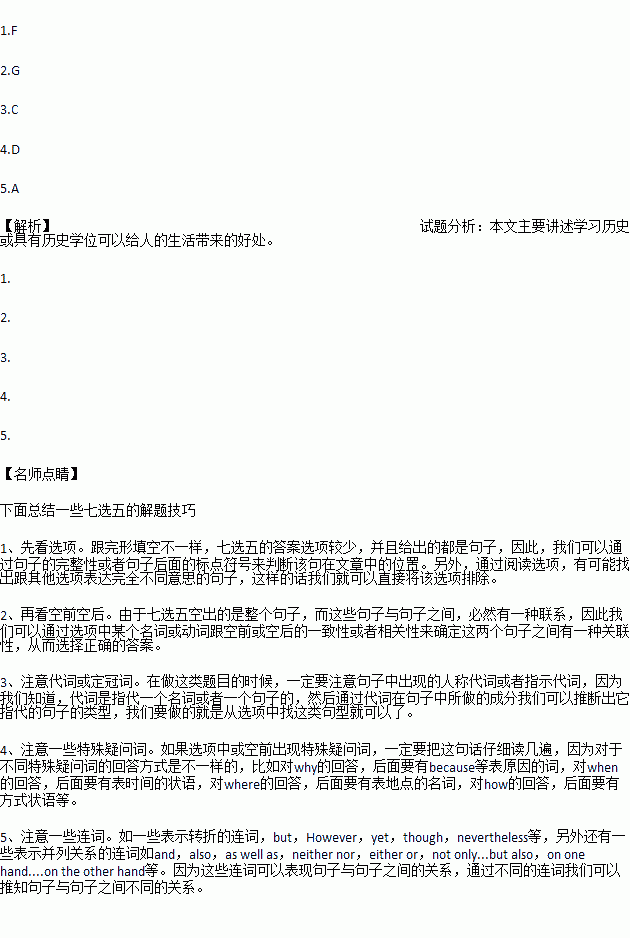题目内容
For many people, history classes are seen as no more than requirements for getting degrees in chemistry, biology, business, marketing, etc. 1. Below are a few reasons why it’s vital that today’s people continue to learn about the past.
Understanding where people come from plays a key role in understanding who they are.2. For this reason, it’s extremely important to learn history in order to understand why people are the way that they are.
Through history classes, you can experience a shift (改革) in the way you think. 3.It’s important to develop minds to be able to consider problems from different angles. Finally, this shift can improve your ability to analyze and understand situations, to make educated decisions and to learn how to weigh the consequences related to each choice before you.
4.The idea that history repeats itself is rooted in truth. From wars to fashion to political trends, historians are often able to make predictions about the future based upon the past. By having a deep understanding of what happened in the past, today’s people can better prepare for brighter futures by making the right decisions—instead of repeating old mistakes.
Many people may not believe that a degree in history can lead to a well-paid job. In fact, students who graduate with degrees in history can become lawyers, business owners, think tank members, educators, leaders in historical organizations writers and so on. 5..
A.Whichever job you take, it can provide a comfortable life.
B.Learning about history can get students admitted to key universities
C.That means you look at things from a new point of view.
D.Learning from the past prevents future mistakes.
E.The key to enjoying the study of history is to find classes that interest you.
F.But the truth is that studying history is a wonderful way to prepare for a successful future.
G.History has shaped cultures, attitudes and social structures; it has shaped the world and its citizens.
请从下列人物中选择你最喜欢的一位,用英语写一篇80词的短文
Thomas Edison | Helen Keller | William Shakespeare |
inventor creative; diligent; full of wisdom | ordinary but great woman disabled; optimistic; eager to learn | writer talented; imaginative; man of all ages |
“Genius is one percent inspiration and ninety-nine percent perspiration” | “If I had the power of sight for three days, ....” | “Life is a stage and we are all actually actors and actresses.” |
要求根据所给信息做适当发挥,且需包括以下三部分内容:
1. 对该人物的简单介绍;
2. 喜欢该人物的理由;
3. 从该人物身上得到的启示。
Among the three great persons, I like __________ most. ________________________
_______________________________________________________________________________
_______________________________________________________________________________
_______________________________________________________________________________
_______________________________________________________________________________
_______________________________________________________________________________
_______________________________________________________________________________
_______________________________________________________________________________
_______________________________________________________________________________
_______________________________________________________________________________
_______________________________________________________________________________

